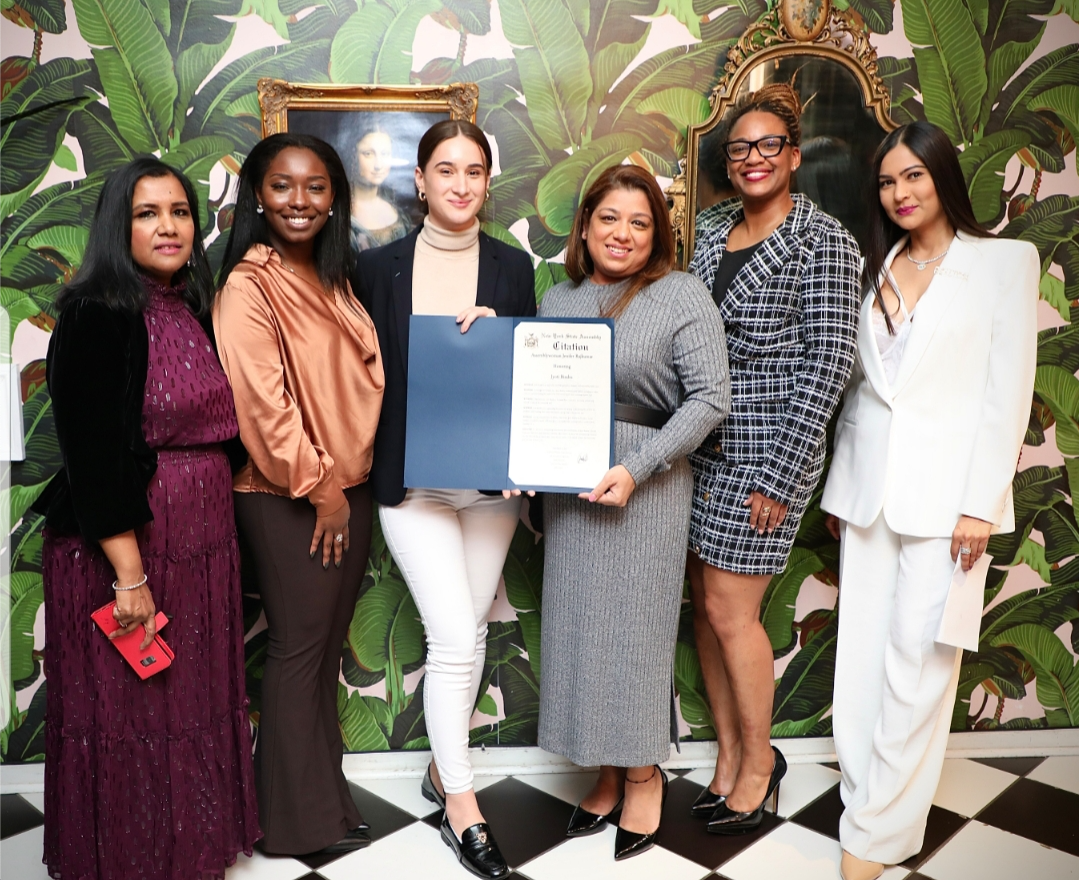Community leaders celebrate Women’s History Month
As Women’s History Month comes to a close, Queens residents came together at C Restaurant and Lounge in Kew Gardens to celebrate and honor women’s achievements.
Rahana Rampershad, co-founder of WE RULE, and Rose Deonarine, founder of ReadySetRose, collaborated to make the event “I am Every Woman, We are Every Woman” a safe space for women in the community to network, celebrate other women’s milestones and self-reflect on their own journeys.
Both hailing from Richmond Hill, Rampershad and Deonarine’s respective organizations focus on highlighting stories of female founders and inspiring and educating the masses, which is what motivated them to localize those missions through the event.
“The goal of our event was to inspire and encourage each other to be better versions of ourselves. The name itself ‘I’m every woman, we are every woman’ and the lyrics by Whitney Houston represent that we as women are the embodiment of so many beings,” Deonarine said. “So when we say that phrase, it’s to be inclusive of all the other women in the room.”
“We did not want it to be about us or government officials, we wanted to make sure it was very inclusive. Everybody had a little piece to play in the room,” Rampershad said.
“There were people at the event that we met for the first time, and they were the first ones to message us and ask when the next event was,” she continued. “It was very powerful.”
Ebony Young, Queens deputy borough president; Vjola Isufaj, chief of staff for Assemblywoman Jenifer Rajkumar; and Mone’t Schultz, deputy chief of staff for Assemblyman Khaleel Anderson showed their support at the event.
Jyoti Bindra, owner and manager of Vikhyat USA in Richmond Hill, was presented with a citation from Assemblywoman Jenifer Rajkumar’s office to honor her contributions to the community during the height of the pandemic.
While the main specialty of Vikhyat USA is providing customers with customized Indian attire, Bindra and the shop’s 70-year-old seamstress worked together to sew masks and distribute them around the U.S. for free during a time where they were in high demand.
“It was so encouraging for her, and it brought her to tears,” Deonarine said of Bindra. “She runs this business with her mom and they depend on it for survival, and yet she did this out of the goodness of her heart and possibly saved lives. That’s why we had this event in March, to celebrate women, whose rights have been oppressed for several years. We’re finally getting our voices heard and we have a long way to go, but on that day we just wanted to celebrate us.”


